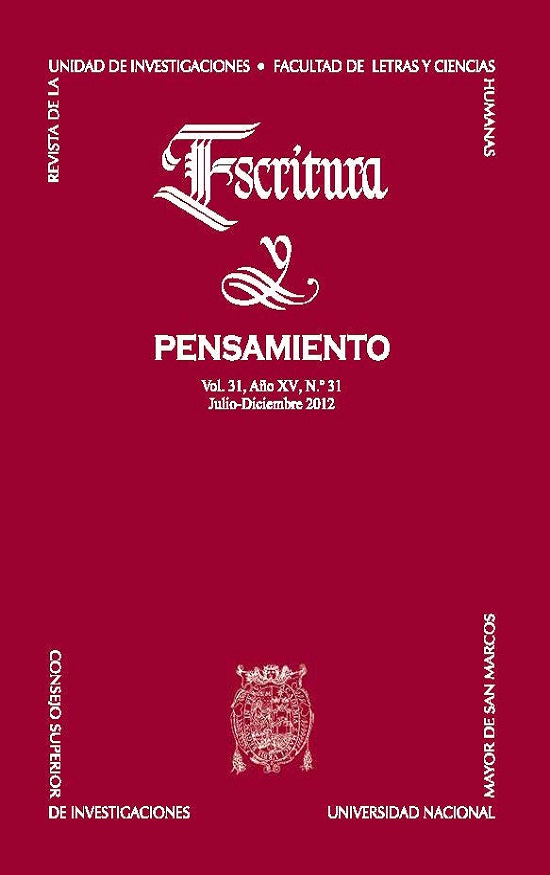PRAGMATIC AND LINGUISTIC CHANGES IN THE ANGLICISMS OF PERUVIAN VOCABULARY
DOI:
https://doi.org/10.15381/escrypensam.v15i31.8001Keywords:
simple loans, hybrids, cliché, forms open to comment (especially western), pragmatic aspects.Abstract
In this study we are describing the different degrees of assimilation of anglicisms in Peruvian Spanish and their final condition, now in order to give an idea of the variety that they present. For this purpose an example is taken of loans employed in Lima newspapers such as El Comercio, La República and Ajá. As a result the lexical registers analysed are associated with newspaper opinion style and a presentation of information style. The results reveal that some of the earliest loans taken from an initial sample in 1996 have in fact been assimilated by Spanish in different ways. All this implies special processes of integration such as tracing, hybridation and substitution with words of different meanings, all of which have had a peculiar character found only in our use vocabulary. On the other hand, since anglicisms first appeared in our language, their has been extended to many different areas of serious reflexion whether scientific, humanistic or simply at family level; at the moment, the use of loans word with many meanings are being observed, belonging to expression at colloquial, group and family level, and whose users are found mainly among young people of basic and higher education. A final analysis shows that the majority of loan words in Peruvian Spanish are either of simple nature, or as the RAE describes them rather crude. The rest are hybrids in this group loan words are found which have English origin and, at the same time, morphemes derived from Spanish.Downloads
Published
Issue
Section
License
AUTHORS RETAIN THEIR RIGHTS:
a. The authors retain their trademark and patent rights, and also over any process or procedure described in the article.
b. The authors retain the right to share, copy, distribute, execute and publicly communicate the article published in the Escritura y Pensamiento (for example, place it in an institutional repository or publish as part a book), with acknowledgment of its initial publication by Escritura y Pensamiento.
c. Authors retain the right to make a subsequent publication of their work, to use the article or any part of it (for example: a compilation of their work, lecture notes, thesis, or for a book), provided that they indicate the source of publication (authors of the work, journal, volume, number and date).













